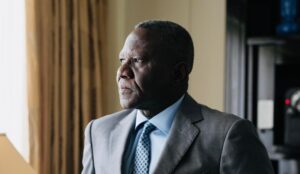
By Ghanaija Relationship Desk
In the lively town of Obuasi in the Ashanti Region of Ghana, there lived a couple named Kofi and Abena. Kofi was a talented craftsman, known for his intricate wood carvings that adorned many homes in the area. Abena, on the other hand, was a skilled seamstress, creating beautiful garments that were highly sought after in the local markets.
Kofi and Abena had been together for many years. They met at a village festival where Kofi’s carvings and Abena’s dresses were displayed side by side. Their shared love for creativity and tradition drew them together, and soon they became inseparable.
As time passed, their relationship grew, but it also began to reveal underlying issues. Kofi noticed that Abena often seemed anxious whenever he was away. She would call him frequently, asking where he was and when he would return. While Kofi appreciated Abena’s concern, he started to feel suffocated by her constant need for reassurance.
Abena, on the other hand, felt that Kofi did not care enough about her feelings. She interpreted his desire for space as a sign that he was pulling away. The more she tried to hold on, the more distant Kofi seemed to become. Their relationship started to strain under the weight of their conflicting needs.
One evening, after a long day at work, Kofi and Abena sat down to talk. Kofi had been feeling increasingly frustrated and knew they needed to address the issue.
“Abena, I love you, but I feel like you depend on me too much,” Kofi began gently. “I need some space to breathe and think. It doesn’t mean I love you any less.”
Abena looked hurt. “But Kofi, I worry when you’re not around. I feel like I’m losing you if I don’t know where you are or what you’re doing.”
Kofi sighed, realizing they needed a deeper understanding of their relationship dynamics. “Abena, it’s not healthy for us to be so dependent on each other. We need to learn the difference between co-dependence and interdependence.”
Abena was confused. “What’s the difference?”
Kofi thought for a moment before explaining. “Co-dependence is when one or both partners rely too heavily on each other for emotional and physical needs. It can become unhealthy because it creates an imbalance and leads to feelings of suffocation and resentment. Interdependence, on the other hand, means both partners support each other while maintaining their independence. It’s a healthier balance.”
Abena listened carefully, understanding the importance of what Kofi was saying. She realized that her constant need for reassurance was pushing him away rather than bringing them closer.
Determined to improve their relationship, Kofi and Abena decided to seek advice from an elder in their community, Nana Ama. She was known for her wisdom and had helped many couples navigate their challenges. They visited her one afternoon, hoping to gain insight and guidance.
Nana Ama welcomed them warmly and listened as they explained their situation. She nodded thoughtfully before speaking. “It’s common for couples to struggle with finding the right balance. Co-dependence often stems from insecurity and fear, while interdependence is built on trust and mutual respect.”
She continued, “To move from co-dependence to interdependence, you must first build a strong sense of self. Both of you need to pursue your individual interests and passions while supporting each other. Communication is key. Express your needs and boundaries clearly, and listen to each other with an open heart.”
Kofi and Abena thanked Nana Ama and left her home with a renewed sense of purpose. They were determined to make their relationship work by fostering interdependence rather than falling into the trap of co-dependence.
Over the next few weeks, they began implementing Nana Ama’s advice. Abena started taking time for herself, pursuing hobbies she had neglected, like gardening and painting. She also made an effort to connect with friends and family, building a support system outside of her relationship with Kofi.
Kofi, too, focused on his personal growth. He dedicated more time to his craft and started teaching wood carving to local children, which brought him great joy. He also made an effort to reassure Abena and communicate his feelings more openly.
Their relationship began to transform. With a healthier balance of independence and support, they felt closer than ever. Abena no longer felt anxious when Kofi was away because she had her own activities and interests to focus on. Kofi, in turn, appreciated the space and felt more connected to Abena because she trusted him and respected his need for independence.
One day, as they sat together on their porch, watching the sunset over Obuasi, Kofi took Abena’s hand. “I’m proud of us, Abena. We’ve come a long way. We’ve learned to support each other without losing ourselves.”
Abena smiled, her heart full of love and gratitude. “Yes, Kofi. We’ve found the balance between being together and being our own person. Thank you for being patient and understanding.”
Their journey from co-dependence to interdependence strengthened their bond and deepened their love. They realized that a healthy relationship is built on a foundation of trust, communication, and mutual respect. By nurturing their individual identities and supporting each other’s growth, they created a partnership that was both fulfilling and sustainable.
Kofi and Abena’s story became an inspiration to others in their community. They often shared their experiences and the lessons they had learned, helping other couples understand the importance of balancing dependence and independence in their relationships.
In the end, Kofi and Abena’s journey taught them that true love is not about losing oneself in another person but about growing together while honoring each other’s individuality. By embracing interdependence, they created a lasting and loving relationship that could withstand the test of time.






